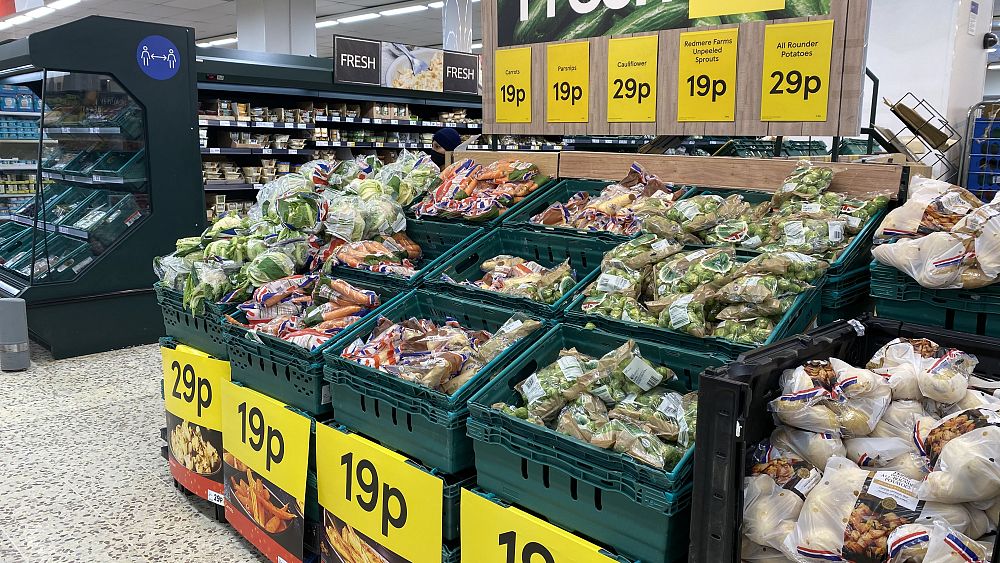The last few days before Christmas are fairly chaotic in British supermarkets every year, with sharp-elbowed shoppers anxiously charging their way around the aisles to finish festive shopping.
It’s a time when items that many people rarely buy at other times of the year — Brussels sprouts, parsnips and Christmas puddings — fly off the shelves in vast quantities.
But fears that shoppers may resort to panic-buying for non-festive reasons have resurfaced after France decided to temporarily shut its border with the UK over the weekend.
British supermarkets depend heavily on the English Channel route for fresh produce, particularly in the colder months of the year.
One major retailer, Sainsbury’s, warned on Monday that the border closure could cause gaps in its stocks imminently.
Lettuce, salad leaves, cauliflowers, broccoli and citrus fruit could all run out within the week, it said.
Thousands of lorries ordinarily cross the English Channel by sea and train carrying goods every day, but the route is currently closed to vehicles travelling from the UK to France.
“While goods can enter from France, few haulage firms will be willing to send trucks and drivers across to the UK without a guarantee they can return to the EU in a timely manner,” said Andrew Opie, a director at the British Retail Consortium, an industry group.
He said retailers had already taken precautions ahead of the Christmas period, but that any prolonged closure would be a problem.
That would explain why one branch of Tesco, another retailer, was mostly showing the signs of a classic pre-Christmas rush on Monday afternoon, with shoppers crowding around for fresh produce.
The superstore in Tottenham, north London had vast quantities of fresh food to sell, including 2.5kg sacks of potatoes for 29p (€0.32) and carrots for 19p (€0.31).
But supplies were also significantly dwindled for other products less associated with the festive season, such as pasta and toilet paper.
These were the items that were in short supply during the first coronavirus lockdown in March and April.
For the moment, retailers insist there is plenty of food, but with a Tier 4 coronavirus restrictions expected to last well into January and no post-Brexit trade deal in sight, it is a picture that could change very quickly.









